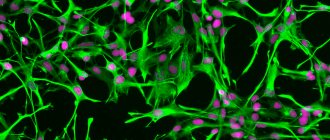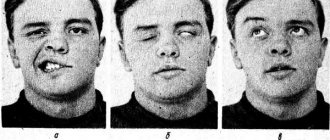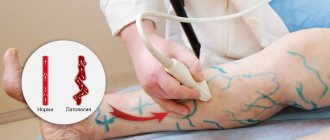Central nervous system degeneration is irreversible organic and functional changes in the spinal cord and brain that lead to mental degeneration. There are many types of diseases, the consequences of which are disturbances in the functioning of the nervous system. Accordingly, treatment will depend on the type of disease and the causes that cause it. Unfortunately, not all diseases of the central nervous system are treatable. Successful therapy for degenerative diseases of the central nervous system is performed at the Yusupov Hospital.
Degenerative diseases of the central nervous system: general concepts
The main characteristics of the group of degenerative diseases of the central nervous system are the following criteria:
- diseases begin unnoticed; before their appearance, the nervous system could function absolutely normally;
- diseases have a gradually progressive course and can last for years or decades;
- some degenerative diseases are associated with hereditary factors and develop in several members of the same family;
- a neurodegenerative disease of the central nervous system is characterized by the gradual death of neurons and their replacement by glial elements;
- atrophic processes at the initial stage of pathology development occur in a specific area of one of the cerebral hemispheres; further, during the advanced stage of degeneration, atrophy in the brain becomes almost symmetrical.
Various diseases of the central nervous system, the list of which is quite long, remain under study. The reasons for the occurrence of atrophic processes during the normal functioning of the nervous system for most of a person’s life are not reliably known. However, there are a number of factors that can trigger brain degeneration:
- alcohol abuse, drug addiction;
- toxic effects of pesticides and herbicides;
- meningococcal infection;
- viral encephalitis;
- deficiency of vitamin B12 and folic acid.
1.What does the group of neurodegenerative diseases include?
The term “neurodegenerative diseases” covers the entire set of disorders caused by degenerative changes in the elements of the nervous system - the brain and conductive nerves. Any pathology of this type is characterized by a close connection between organic and functional disorders, and the nature of the latter is determined by the localization of the pathological process and the degree of tissue atrophy of certain parts of the brain.
Neurodegenerative diseases (NDDs) lead to a gradual increase in mental and physical disability. Progressive pathology of the brain as a regulatory center leads to cognitive and motor disorders. At the same time, criticism remains in the initial stages, which entails difficult experiences for the patient from the awareness of his own inferiority. A complex of progressive disorders in NDD may include:
- behavioral disorders;
- movement disorders;
- loss of memory, thinking;
- loss of ability to perceive and comprehend;
- speech disorders;
- imbalance in the emotional-volitional sphere.
Neurodegenerative diseases are characterized by progression, leading to personality degeneration, complete loss of ability to work and legal capacity. As a rule, the death of patients occurs after several (sometimes tens) years from additional diseases, which can partly be associated with increasing difficulties in caring for and serving such patients.
A must read! Help with treatment and hospitalization!
Organic diseases of the central nervous system
The presence of an organic disease of the central nervous system means that the brain is defective. The pathology can be congenital or acquired. Neurologists say that organic disorders of the central nervous system of the first stage can be found in 98% of the population, but they do not require treatment. The second and third stages are characterized by more serious lesions and are accompanied by significant deviations.
Congenital organic brain lesions occur during embryonic development or during childbirth as a result of birth trauma. The reasons for their appearance may be unfavorable factors that influenced the pregnant woman:
- woman's use of alcohol and drugs;
- severe influenza or other infectious diseases during pregnancy;
- the effect of certain medications;
- severe stress.
Acquired organic lesions can occur after a stroke, traumatic brain injury, alcohol and drug abuse, and infectious diseases with brain damage.
Among the diseases that are caused by organic lesions of the central nervous system, mental retardation and dementia are distinguished. With oligophrenia, mental retardation occurs. The disease occurs during fetal development or in the first year of life. Children have reduced intelligence and poorly developed speech and motor skills. With dementia, there is a loss of previously acquired skills and knowledge. Gradually, dementia leads to complete degradation of a person. Considering this disease of the central nervous system, the symptoms are the following: impaired memory, speech, orientation in space, a person cannot learn new things and loses old skills and knowledge.
Neurodegenerative diseases of the brain
Neurodegenerative diseases include a whole group of diseases that are based on processes that destroy brain cells. Diseases may differ in symptoms, duration, and lesion site, but they are all united by dementia (dementia, personality destruction), which is an invariable companion to all neurodegenerative diseases of the brain.
All diseases included in this group lead to complete degradation of personality, dementia as a result of the death of brain cells. This process is irreversible, and the main task facing the doctor is to stop the process. Dementia manifests itself differently with each individual disease, to varying degrees and at different stages, but the result, as a rule, is the same - personality degradation and death from somatic diseases.
All neurodegenerative diseases of the brain manifest themselves at different ages and are not a sign of extreme old age.
Let's list some of the most common diseases of this type: Alzheimer's disease. This disease is popularly known as “senile insanity.” However, this disease is not a disease of old age; it can develop at the age of 40 or even earlier. The initial stage is often mild, so the onset of the disease can be missed. Over time, memory problems intensify, thinking and perception, speech suffer, and vision and hearing may also suffer.
Parkinson's disease . This disease is known for the fact that the patient suffers from severe tremors, his hands and head shake, he cannot move normally and hold objects. Most often, this disease occurs in older people over 60 years of age. In addition to movements, speech suffers, masticatory muscles weaken, and drooling occurs.
Pick's disease. It is also more common in older people. Some areas of the brain atrophy, leading to dementia and various disorders. This disease is characterized by signs of dementia in the earliest stages. The disease progresses rapidly. The average life expectancy for Pick's disease is 6 years.
Dementia with Lewy bodies. Lewy bodies are a specific protein that accumulates in brain cells, causing their death. Symptoms are similar to Parkinson's disease. The disease progresses, but is accompanied by rare improvements. Within each individual disease, there may be different stages, degrees, forms of dementia, and localization of brain lesions.
Permanent symptoms of neurodegenerative brain diseases are signs of dementia. They are the ones who give a signal about some pathological processes in the brain. At first, a person’s memory is impaired, he forgets names, confuses dates, cannot remember where he put his wallet or whether he walked the dog, but criticism and consciousness are still normal. At this stage, you can mistake dementia for ordinary absent-mindedness, which is characteristic of many people and not only in old age. Over time, the patient’s intelligence begins to decline, spatial orientation is impaired, habitual skills are lost, the person has difficulty using household appliances, and does not admit his lack of independence, that is, criticism weakens.
The last stage of dementia is the complete collapse of personality. For the family, the patient is seen as a completely insane person who does not recognize anyone. Any communication with the patient becomes almost impossible. A person needs constant care and supervision. Then, as a result of somatic diseases, death occurs. The causes of neurodegenerative diseases can be various processes and factors. They do not always depend on heredity or injury.
Key causes of neurodegenerative diseases:
Vascular diseases. Problems with blood vessels can lead to insufficient nutrition of the brain. With serious vascular diseases, brain cells gradually begin to die. However, this process can in some cases be stopped if the underlying cause is treated.
Genetic predisposition. Some diseases have their own gene, for example, there is a test that shows a predisposition to Alzheimer's disease, which is offered to those who have relatives with this disease.
Traumatic brain injuries . As a result of trauma to the brain, one of the possible consequences is dementia.
Brain cancer. Tumors can form in various lobes and areas of the brain, but they are all accompanied by neurological changes, including blindness, deafness, memory and thinking disorders, and personality degradation.
Infections. Various serious infections such as encephalitis, syphilis, HIV also sometimes lead to the destruction of brain cells.
Diagnostics Methods for researching neurodegenerative diseases of the brain Diagnosis of neurodegenerative diseases of the brain is complicated by the fact that there is no analysis or examination that would accurately and quickly indicate a specific diagnosis. Of course, diagnostics may include a blood test, an MRI, and an electroencephalogram. This is especially true for traumatic brain injuries.
MRI shows whether there are tumors in the brain, whether there are problems with blood vessels, hemorrhages and any changes.
A blood test helps to find out if you are anemic or if there are any changes in your blood cells.
If a person suspects signs of dementia in himself or his family member, he should be examined by a neurologist, therapist and ophthalmologist, and also visit a psychiatrist. Very often, the onset of a neurodegenerative disease can be confused with severe depression, when memory also deteriorates, problems with communication and perception begin, and a person has difficulty finding words. This severe depression can develop after shock, trauma or stress. To make a diagnosis, in addition to passing all the tests, it is necessary to observe the patient for six months. If during this time the same symptoms persist or worsen, we can talk about dementia.
Signs of a neurodegenerative disease also include hearing impairment, sometimes hallucinations and delusions, and the presence of organic brain damage (hemorrhage, tumor). During the examination, the patient undergoes several tests for perception, memory, logical and abstract thinking. For example, a doctor asks a patient to remember 3 words that are unrelated to each other in meaning, for example, “chair, sky, anger.” Then they are asked to draw a clock face and write the numbers next to it. After some time, the patient must repeat the words. These tests may be done at regular intervals over several months to see how quickly the disease is progressing.
Lumbar puncture is also used as a diagnostic tool. A small amount of cerebrospinal fluid is taken from the patient through a small puncture in the lower back. It is used for examination and further diagnosis of the body’s condition, and thus reduces intracranial pressure. Such a study will help identify the presence of serious infections, hemorrhages in the brain, and various tumors.
Treatment . Treatment of neurodegenerative diseases has its own characteristics: At the same time, it is necessary to treat somatic diseases. Patients require constant care and support. It is not recommended to leave them alone and isolate them from society, as this will only worsen the course of the disease. Social support and psychological assistance are an indispensable part of comprehensive treatment. Drug treatment depends on the specific disease and the cause of its occurrence. For example, in case of vascular dementia, medications are necessarily prescribed to strengthen blood vessels and normalize blood pressure. Also, for neurodegenerative diseases, nootropics (to improve brain nutrition) and antipsychotics (sedatives) are prescribed. Depression often accompanies dementia. In Parkinson's disease, at a certain stage, suicidal tendencies arise. For this reason, antidepressants are prescribed for neurodegenerative diseases. However, these drugs have many side effects. They are selected and adjusted as treatment progresses. In the initial stages, it is important to maintain a certain mental load. Patients perform various exercises to train memory and thinking. This helps slow down the progression of the disease. It is important to monitor the patient's diet. Neurodegenerative diseases are accompanied by various disorders of the digestive and excretory systems; patients' appetite worsens, and bulimia may develop. If this is a bedridden patient, he must be fed on time, excluding foods that can cause intestinal obstruction.
It is impossible to insure yourself against neurodegenerative diseases, but you can reduce the risk of their occurrence or slow down their development: Study foreign languages. It sounds strange, but polyglots are less likely to suffer from neurodegenerative diseases, or they appear later. Maintain your level of physical and mental activity for as long as possible. Physical inactivity causes problems with blood vessels, which can impair brain nutrition and lead to dementia. Intellectual activity is also important. It has been proven that educated people with high intelligence, even if they suffer from neurodegenerative diseases, they begin to appear later, since the functions of dead brain cells are transferred to other cells. Fight diseases that lead to dementia. Risk factors include diabetes, obesity, and alcoholism. All of these conditions need to be treated and monitored to reduce the risk of neurodegenerative diseases. With so many symptoms, neurodegenerative diseases can be complicated already at the initial stages by various conditions and disorders. For example, insomnia. It does not affect everyone or at every stage, but sometimes people with advanced dementia cannot sleep normally at all or sleep during the day and wander around at night. One of the complications is aggression. Some patients may become aggressive, perceiving doctors and family members as a threat. Hallucinations also provoke aggression. This can be observed more often in Pick's disease and alcoholic dementia. Hallucinations are serious complications that cause many problems for both the patient and his family members. Hallucinations, unlike illusions, occur without any external influences. The patient sees something that is not there and perceives it as reality. Hallucinations can be very frightening, the patient screams and experiences extreme stress. This complication occurs in dementia with Lewy bodies. In the initial stages of the disease, it can be complicated by depression, when a person understands that he is sick and what this will lead to.
Infectious diseases of the central nervous system
Infectious diseases of the central nervous system are among the most common neurological pathologies. CNS diseases caused by infection are very dangerous. They have a severe course, leave serious consequences and significant neurological deficits. Infectious diseases of the central nervous system can be caused by bacteria, viruses, and fungal diseases. Most often, diseases develop when meningococcus, staphylococcus, pneumococcus, ECHO and Coxsackie enteroviruses, mumps, and candida enter the body. The entry gates for infection are the ENT organs; it is also transmitted by contact, hematogenous, lymphogenous, and perineural routes.
The infection can affect the nervous system as a primary disease or occur secondarily as a result of the development of an infectious process outside the central nervous system. Infectious diseases of the central nervous system include:
- meningitis,
- encephalitis,
- polio,
- syphilis of the nervous system,
- toxoplasmosis of the nervous system,
- neurological manifestations of HIV infection,
- parasitic diseases of the nervous system.
Vascular diseases of the central nervous system
Poor circulation in the brain provokes the development of vascular diseases of the central nervous system. These pathologies are extremely dangerous because in most cases they lead to disability. Also, vascular diseases of the central nervous system have a high mortality rate. Brain damage occurs as a result of ischemic and hemorrhagic strokes, transient ischemic attacks, and spontaneous subarachnoid hemorrhages. The causes of such pathologies are:
- aneurysms,
- thromboembolism,
- vascular atherosclerosis,
- hypertonic disease,
- acute toxic damage to the walls of blood vessels,
- chronic degenerative diseases of the walls of blood vessels.
The trigger for the development of strokes can be severe stress, seizures, alcohol intoxication, and sudden changes in body temperature. Vascular disease of the central nervous system most often occurs spontaneously and requires immediate medical attention.
Treatment and diagnosis of degenerative diseases of the central nervous system
The danger of degenerative diseases of the central nervous system is that they are difficult to predict. If there are provoking factors in a person’s life, it is recommended to lead a healthy lifestyle and regularly visit a neurologist for preventive examinations. If you suspect signs of a central nervous system disease, you should immediately consult a doctor. The earlier the disease is detected, the greater the chance of slowing down the progression of degenerative processes in the brain.
Diagnosis and treatment of degenerative diseases will depend on the type of pathology. Having determined the clinical picture of the disease, the doctor will prescribe tests to clarify the patient’s condition. These may include laboratory tests, ultrasound, MRI, CT, and psychological tests to determine the status of cognitive skills.
At the Yusupov Hospital in Moscow there is a neurology clinic, where highly qualified neurologists and doctors of sciences provide assistance. Doctors at the Yusupov Hospital have extensive experience in treating degenerative diseases of the central nervous system and use the latest methods of therapy and rehabilitation in their work, which allows them to take on the most complex cases.
You can ask for help, make an appointment and get advice from specialists by phone.
2.Causes of neurodegenerative diseases and risk factors
The exact cause that provokes the onset of pathology has not been identified for any neurodegenerative disease. There are some characteristic background conditions inherent in one or another combination in patients with NDD. The most frequently identified trends are:
- disruptions in the metabolism and synthesis of certain proteins that make up the myelin sheath of neurons (their lack or excessive accumulation);
- disturbances in the activity of receptors of brain structures associated with neurotransmitter regulation;
- genetic predisposition, presence of relatives with neurodegenerative diseases;
- intoxication and death of neurons against the background of concomitant pathological processes or under the influence of constantly acting negative factors (free radicals, herbicides, pesticides, alcohol and drugs).
In addition, many pathologies affecting metabolic processes are recognized as indirect risk factors:
- infections;
- obesity;
- head injuries;
- diseases of the cardiovascular system;
- chronic endocrine disorders;
- renal and liver failure as a mechanism for removing toxins;
- all bad habits;
- low physical and intellectual activity.
Visit our Neurology page











